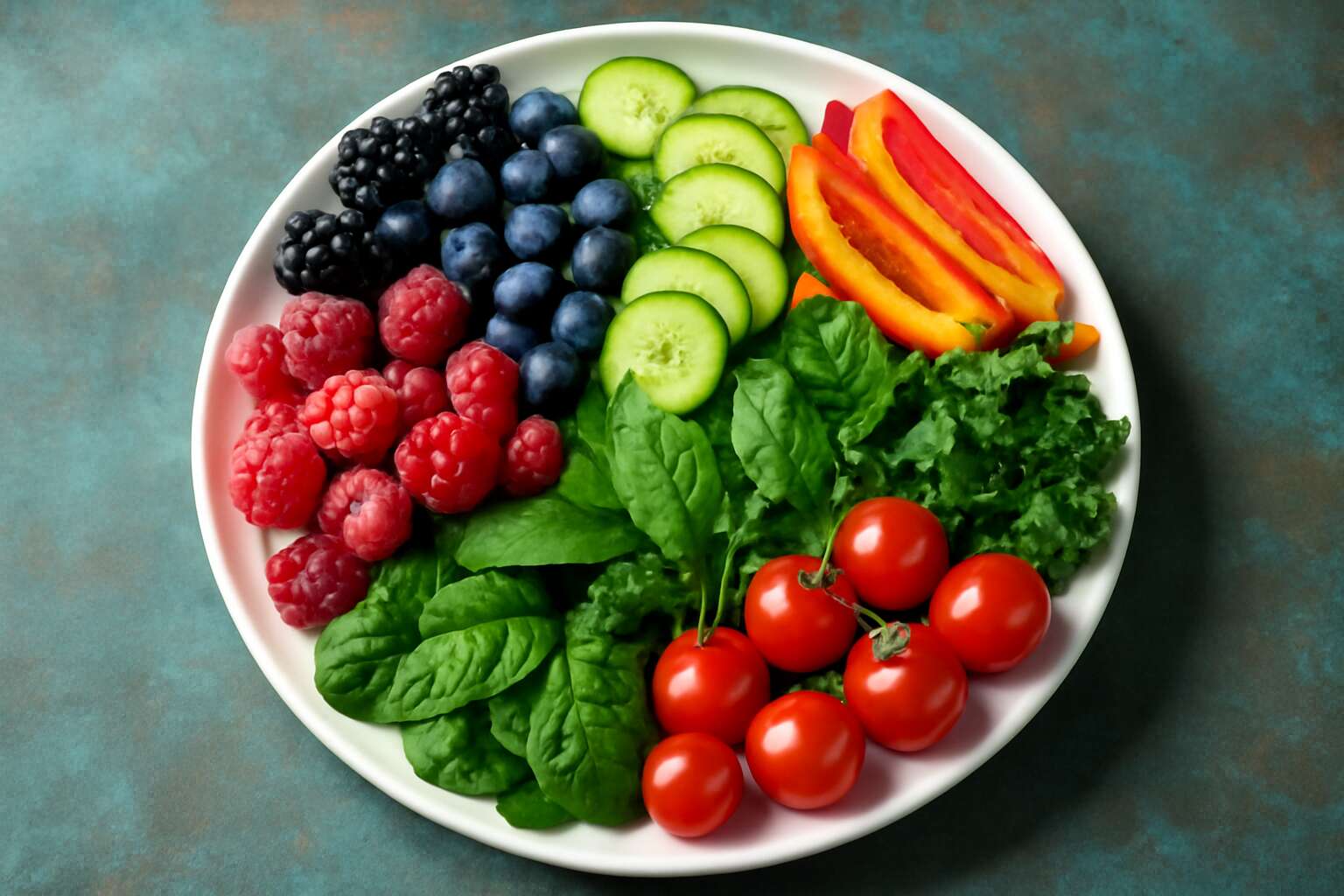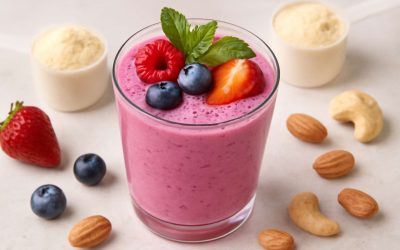Understanding the Low Carb Diet with Fruits and Vegetables
What is a Low Carb Diet?
A low carb diet with fruits and vegetables can be a game-changer for those seeking healthier eating patterns. Unlike traditional low carb plans that often restrict all plant-based foods, this approach emphasises nutrient-dense produce while limiting high-sugar options. It’s about striking a balance—reducing carbs but still enjoying colourful, flavourful foods that fuel the body.
So, what exactly is a low carb diet? It’s a nutritional strategy that limits carbohydrate intake to promote fat burning and stabilise blood sugar levels. This doesn’t mean abandoning fruits and vegetables; rather, it involves choosing lower-carb varieties and mindful portioning. A well-structured low carb diet with fruits and vegetables can help improve energy levels and support weight management.
- Focus on leafy greens like spinach and kale, which are low in carbs but high in fibre and nutrients.
- Incorporate berries in moderation, as they offer antioxidants without excessive sugar.
- Limit starchy vegetables such as potatoes and corn, favouring cauliflower or zucchini instead.
Benefits of Incorporating Fruits and Vegetables
Embarking on a low carb diet with fruits and vegetables unlocks a realm of vibrant flavours and nourishing benefits. When approached thoughtfully, this dietary strategy transforms what might seem restrictive into a colourful tapestry of wholesome choices. Research indicates that incorporating nutrient-dense produce can enhance satiety and optimise energy levels, making the journey both sustainable and satisfying.
Fruits and vegetables are packed with fibre, antioxidants, and vital micronutrients, all of which play a crucial role in supporting overall health. For those following a low carb diet with fruits and vegetables, selecting options such as leafy greens, berries, and cruciferous vegetables ensures a balance between flavour and carb-conscious eating. For example, leafy greens like spinach and kale are low in carbs but rich in fibre and essential nutrients, making them perfect allies in this culinary adventure.
Furthermore, choosing the right produce can turn a simple meal into a nutrient powerhouse. An easy way to elevate your dishes is through a variety of vegetables and fruits that provide antioxidants and vitamins without tipping the carb scales. This approach promotes not only weight management but also a robust immune system, ensuring you stay energised and vibrant every day.
Common Myths and Facts
Amidst the lush tapestry of health myths, few are as persistent as the belief that fruits are incompatible with a low carb diet with fruits and vegetables. Reality, however, dances to a different rhythm. While some assume that all fruits are sugar-laden temptresses, the truth is far more nuanced. Many berries and green produce offer the sweetness of nature without tipping the carb scales, proving that a low carb diet with fruits and vegetables can be both vibrant and balanced.
One common misconception is that avoiding fruit altogether is necessary for success. In truth, selecting fruits like strawberries, blueberries, and blackberries allows you to indulge in flavour while maintaining low carbohydrate intake. Vegetables, especially leafy greens and cruciferous varieties, provide essential micronutrients without excessive carbs, anchoring your diet in nourishment and flavour.
- Fruits with a lower glycaemic index are generally more suitable for a low carb diet with fruits and vegetables.
- Choosing whole produce over processed options preserves fibre and antioxidants, which are vital for health.
Understanding these myths transforms the journey into a celebration of nature’s bounty, showcasing that a low carb diet with fruits and vegetables is both a mindful and a marvellous endeavour. It’s about embracing the colourful symphony of produce that elevates meals from mundane to magical, all while honouring your body’s need for balance and vitality.
Choosing the Right Fruits for a Low Carb Diet
Low Sugar Fruits to Include
Choosing the right fruits for a low carb diet with fruits and vegetables is both an art and a science — a delicate dance between flavour, nutrition, and carbohydrate content. The allure of sweet, succulent fruits often tempts us into overindulgence, yet not all fruits are created equal in the realm of low carbohydrate consumption. Opting for low sugar fruits preserves the integrity of your dietary goals while satisfying your innate craving for natural sweetness.
Fruits such as berries—strawberries, raspberries, and blackberries—stand out as champions in this arena. Their vibrant hues and tart notes are packed with antioxidants, yet they remain relatively modest in carbs. A handful of these berries can elevate your plate without tipping the carbohydrate scales. Vegetables, too, play a pivotal role; leafy greens, cruciferous varieties, and colourful peppers contribute essential nutrients with minimal impact on blood sugar levels.
In the pursuit of a low carb diet with fruits and vegetables, understanding the carbohydrate content of each choice becomes paramount. Here is a quick overview:
- Low sugar berries (strawberries, raspberries)
- Crisp green vegetables (spinach, kale, broccoli)
- Cruciferous vegetables (cauliflower, Brussels sprouts)
This mindful selection ensures that your diet remains both nourishing and aligned with your low carbohydrate aspirations, fostering a symphony of flavours without sacrificing health.
Fruits to Limit or Avoid
While embracing a low carb diet with fruits and vegetables, it is essential to recognise that not all produce aligns with this delicate nutritional balance. Some fruits, bursting with natural sugars, can swiftly undermine your efforts to maintain steady blood sugar levels. Grapes, bananas, and tropical fruits like mangoes and pineapples, though delicious, are best limited or avoided. Their high carbohydrate content can easily tip the scales and disrupt your low carb goals.
Similarly, starchy vegetables such as potatoes, sweet corn, and peas contain more carbs than their leafy or cruciferous counterparts. For those committed to a low carb diet with fruits and vegetables, prioritising options like leafy greens, cauliflower, and zucchini ensures minimal impact on carbohydrate intake while still offering vital nutrients. Remember, selecting your produce with care transforms your diet into a harmonious symphony—rich in flavour, yet aligned with your health aspirations.
Portion Control and Serving Tips
Choosing the right fruits for a low carb diet with fruits and vegetables is an art that balances flavour with discipline. It’s tempting to reach for the juiciest, sweetest options, but moderation is the key to maintaining your dietary harmony. Opt for berries such as strawberries, raspberries, and blackberries—delightful treats that pack a punch of antioxidants while keeping carbohydrate levels in check.
Portion control plays a pivotal role in this delicate dance. A small handful of berries or a few slices of avocado can elevate your meals without tipping the carbohydrate scale. Serving tips? Incorporate these low glycaemic options into salads, yoghurt, or even as a colourful garnish, adding vibrancy and nutritional richness without compromising your low carb goals.
- Start with small servings to gauge your body’s response.
- Pair fruits with healthy fats, like nuts or seeds, to slow sugar absorption.
- Use a food scale or measuring cups to keep portions precise and consistent.
Ultimately, mastering portion control and choosing fruits wisely transforms your low carb diet with fruits and vegetables into a celebration of flavours—savoury, sweet, and everything in between—without forsaking your health ambitions. This subtle mastery ensures that each bite is both nourishing and aligned with your ketogenic or low carbohydrate lifestyle, making every meal a mindful delight.
Best Vegetables for a Low Carb Lifestyle
Non-Starchy Vegetables
In the intricate dance of a low carb diet with fruits and vegetables, not all greens and colours are created equal. Some vegetables pack a punch without tipping the carbohydrate scales, making them ideal allies on your journey. Non-starchy vegetables, in particular, are the unsung heroes—delivering fibre, vital nutrients, and flavour while keeping carbs in check. Their versatility ensures that every meal remains vibrant and satisfying, even as you embrace a low carb lifestyle.
When choosing the best vegetables for a low carb diet with fruits and vegetables, focus on options like leafy greens, cruciferous vegetables, and zucchini. These vegetables are low in carbohydrates but high in nutritional density, making them perfect for those seeking to optimise health without sacrificing taste. For instance, leafy greens such as spinach and kale are rich in antioxidants and fibre, while broccoli and cauliflower serve as hearty, low-carb staples that add texture and depth to your meals.
To maximise variety, consider incorporating these vegetables into your daily routine, perhaps by following an ordered list of your favourites:
- Spinach and kale for nutrient density
- Broccoli and cauliflower for versatility
- Zucchini and eggplant for texture
- Celery and cucumber for crunch and hydration
Leafy Greens and Cruciferous Vegetables
In the pursuit of a low carb diet with fruits and vegetables, choosing the right greens isn’t just a matter of preference—it’s a conscious act of nourishment and resilience. Leafy greens like spinach and kale stand at the forefront, packed with antioxidants and fibre that bolster your body’s natural defences. These vegetables are more than mere accompaniments; they are vital allies in maintaining a balanced low carb lifestyle, providing the necessary nutrients without tipping the carbohydrate scales.
Cruciferous vegetables, such as broccoli and cauliflower, deserve special mention for their remarkable versatility and nutrient density. Rich in compounds that support detoxification and cellular repair, they elevate your meals both in flavour and function. Incorporating these into your daily routine not only sustains your dietary goals but also deepens your connection to the profound potential of food as medicine.
Incorporating Vegetables into Your Meals
In the lush tapestry of a low carb diet with fruits and vegetables, selecting the right produce transforms everyday meals into a symphony of nourishment and vitality. Vegetables that are low in carbohydrates yet rich in flavour serve as the cornerstone of this culinary adventure. Root vegetables like carrots and parsnips, although delicious, are best enjoyed in moderation to maintain your low carb goals, while cleverly incorporating non-starchy options keeps your meals vibrant and satisfying.
For a truly enchanting experience, consider these vegetables:
- Bell peppers — bursting with colour and vitamin C, they add crunch and sweetness without tipping the carbohydrate balance.
- Zucchini — a versatile and gentle fibre source, perfect for spiralising into “noodles” that mimic carb-heavy dishes.
- Asparagus — packed with antioxidants, it elevates any plate with its tender elegance.
Incorporating these vegetables into your meals not only honours the principles of a low carb diet with fruits and vegetables but also opens the door to a world of flavour and health. Their subtle sweetness and textural variety make them indispensable allies in your journey towards a balanced, vibrant life.
Meal Planning and Recipes
Sample Low Carb Breakfasts with Fruits and Vegetables
Embarking on a low carb diet with fruits and vegetables doesn’t mean sacrificing flavour or variety. Thoughtful meal planning can transform your mornings into a celebration of fresh tastes and nourishing ingredients. The key lies in selecting recipes that marry the natural sweetness of fruits with the hearty crunch of vegetables, all while maintaining carbohydrate control. For instance, a colourful vegetable scramble with avocado and a handful of berries can provide a vibrant start to your day, balancing nutrients and enhancing satiety.
To keep things interesting, consider experimenting with different combinations—like a spinach and mushroom omelette topped with sliced tomato, or a smoothie packed with low sugar fruits and leafy greens. Here’s a simple sample breakfast idea for those committed to a low carb diet with fruits and vegetables:
- Scrambled eggs with diced bell peppers, cherry tomatoes, and a sprinkle of feta cheese.
- A small bowl of mixed berries, such as strawberries and raspberries, for natural sweetness.
- A side of sliced cucumber or celery sticks to add crunch and fibre.
By weaving these elements into your morning routine, you not only adhere to your low carb goals but also enjoy a colourful, nutrient-dense start that energises your entire day. The art of meal planning within a low carb diet with fruits and vegetables hinges on creativity and balance, transforming the mundane into a culinary adventure that sustains both body and spirit.
Lunch and Dinner Ideas
Meal planning for a low carb diet with fruits and vegetables is an art that transforms everyday eating into a symphony of flavours and textures. By thoughtfully combining nutrient-dense ingredients, you can craft satisfying lunches and dinners that adhere to your carbohydrate limits while delighting your palate. Imagine tender slices of grilled chicken nestled atop a bed of colourful roasted vegetables, drizzled with herb-infused olive oil—each bite a testament to the vibrant potential of a low carb diet with fruits and vegetables.
For those seeking variety, consider experimenting with recipes that incorporate fresh herbs, spices, and healthy fats. Incorporating a well-balanced array of ingredients is crucial; here’s a simple example of a low carb dinner idea:
- Grilled salmon fillet topped with lemon and dill.
- Steamed broccoli and cauliflower florets, seasoned with garlic and olive oil.
- A side salad of mixed greens, avocado slices, and cherry tomatoes.
Alongside these main courses, you might prepare a nutrient-rich soup or a colourful vegetable stir-fry, ensuring each meal is both nourishing and aligned with your low carb goals. Embracing the creative possibilities within a low carb diet with fruits and vegetables allows every mealtime to become an opportunity for culinary exploration and sustenance.
Healthy Snacks
Meticulous meal planning transforms the humble act of eating into a celebration of flavours and vitality. For those embracing a low carb diet with fruits and vegetables, creating nourishing snacks that satisfy without compromising your carbohydrate limits can seem daunting—yet it’s a pursuit worth every effort. The key lies in selecting nutrient-dense options that fuel your body and delight your senses.
Healthy snacks play a pivotal role in maintaining energy levels and curbing cravings throughout the day. Think crisp cucumber slices topped with hummus, or a handful of mixed berries paired with a dollop of Greek yoghurt. For a more substantial bite, consider making a savoury avocado and tomato wrap using lettuce leaves or preparing a batch of roasted vegetable crisps seasoned with herbs and spices.
Incorporating a variety of these wholesome options keeps your low carb diet with fruits and vegetables exciting and sustainable. Whether you prefer snack-sized portions or more filling choices, the secret is to focus on fresh, colourful ingredients that nourish your body—every bite a testament to mindful, delicious living.
Nutritional Tips and Considerations
Balancing Macronutrients
Balancing macronutrients on a low carb diet with fruits and vegetables requires a nuanced approach that emphasises nutrient density without tipping into excess carbohydrate intake. While fruits and vegetables are vital for providing essential vitamins, fibre, and antioxidants, it’s equally important to ensure proteins and healthy fats form the cornerstone of your meals. This harmony supports sustained energy levels and stabilises blood sugar, fostering a more effective low carb lifestyle.
To optimise your diet, consider integrating a diverse array of low sugar fruits and non-starchy vegetables. These can serve as natural accompaniments to lean proteins and healthy fats, creating a satisfying and balanced plate. A practical method is to include a variety of these foods across your meals, ensuring you receive a broad spectrum of micronutrients. Remember, maintaining the right proportion of macronutrients can make all the difference in achieving your health goals on a low carb diet with fruits and vegetables.
Ensuring Adequate Fiber Intake
Ensuring adequate fibre intake is a cornerstone of a successful low carb diet with fruits and vegetables. Fibre not only promotes healthy digestion but also helps stabilise blood sugar levels, which is crucial when managing carbohydrate consumption. Incorporating a variety of fibre-rich, low-sugar fruits such as berries, and non-starchy vegetables like broccoli and zucchini, can significantly enhance your nutrient profile without tipping the carbohydrate balance.
To optimise fibre intake, consider integrating these foods into your daily meals. A strategic approach might include choosing whole, unprocessed options over refined alternatives, ensuring you benefit from the full spectrum of micronutrients. Remember, variety is vital — a colourful plate packed with different fruits and vegetables fosters a diverse gut microbiome and supports overall well-being. Including a mix of these fibre-rich foods can make your low carb diet with fruits and vegetables both satisfying and healthful, helping you stay on track with your dietary goals.
Managing Sugar and Carbohydrate Counts
Managing sugar and carbohydrate counts in a low carb diet with fruits and vegetables requires a nuanced understanding of their intrinsic qualities. While fruits are often perceived as sugary, selecting low sugar fruits such as berries can allow you to indulge without sabotaging your goals. The key is to recognise that not all fruits and vegetables impact blood sugar equally. Prioritising non-starchy vegetables like zucchini, spinach, and cauliflower helps keep carbohydrate intake in check while providing essential micronutrients.
To stay aligned with your low carb diet with fruits and vegetables, consider adopting a mindful approach to portion sizes. For example, using a simple
- handful of berries
- half a zucchini
as a serving can make a significant difference. Balancing your plate with fibre-rich, low-sugar options not only curbs cravings but also sustains energy levels. Remember, the goal isn’t deprivation but a deliberate, almost philosophical choice to nurture your body without surrendering to excess. This balance fosters a deeper connection with your dietary habits, transforming them into a meaningful act of self-respect and resilience.
Potential Challenges and How to Overcome Them
Dealing with Cravings
Cravings are often the silent saboteurs of a low carb diet with fruits and vegetables. They creep in during moments of fatigue, stress, or even boredom, whispering promises of comfort foods that can derail progress. Recognising this internal tug-of-war is the first step towards mastery. It’s essential to understand that cravings are not a moral failing but a natural response rooted in our biology and emotional states.
To navigate these temptations, some find success in strategic substitution. For instance, replacing high-sugar fruits with berries or crunchy vegetables like celery can satisfy the desire for texture and sweetness without compromising the low carb principles. Additionally, mindful eating practices—paying close attention to hunger cues and eating slowly—can diminish the intensity of cravings. Remember, maintaining a balanced low carb diet with fruits and vegetables requires both discipline and compassion for oneself as human nature inevitably seeks out comfort amid the challenge of dietary change.
Eating Out and Social Situations
Navigating social situations while maintaining a low carb diet with fruits and vegetables can be a delicate dance. When dining out or attending gatherings, the fear of unknowingly consuming hidden carbs or sugary sauces often looms large. Yet, with a bit of foresight, it’s entirely possible to enjoy these moments without compromising your dietary goals.
Choosing restaurants with flexible menus or requesting modifications—such as swapping fries for extra vegetables—can make all the difference. For example, ordering a grilled chicken salad with a vinaigrette allows you to indulge in fresh produce while staying aligned with low carb principles. To further ease your experience, consider these tips:
- Review menus in advance to identify suitable options.
- Speak openly with waitstaff about your low carb diet with fruits and vegetables, ensuring your meal is prepared to fit your needs.
- Bring a small container of nuts or cut vegetables as an emergency snack, so you’re not caught off guard.
Social occasions shouldn’t feel like obstacles but opportunities to showcase the versatility of a low carb diet with fruits and vegetables. The key lies in mindful choices and a little preparation, allowing you to enjoy shared moments without guilt or worry.
Tracking Your Progress
Maintaining a low carb diet with fruits and vegetables can sometimes feel like navigating a labyrinth, especially when progress stalls unexpectedly. One common challenge is accurately tracking your carbohydrate intake, which is vital to staying aligned with your dietary goals. Without meticulous monitoring, it’s easy to unknowingly consume hidden carbs that derail your efforts. Fortunately, there are strategies to overcome this hurdle and keep you on course.
Implementing a consistent tracking system, whether through a dedicated app or a detailed journal, can illuminate your carbohydrate consumption patterns. Regularly reviewing your intake helps identify subtle sources of hidden carbs—like certain dressings or processed foods—that might otherwise slip past unnoticed. To simplify this process, consider creating a list of low carb friendly fruits and vegetables, so you always have a quick reference at hand. Remember, patience and precision are your allies in this journey, transforming potential setbacks into stepping stones for success in your low carb diet with fruits and vegetables.
Success Stories and Inspiration
Real-Life Examples
Success stories breathe life into the journey of embracing a low carb diet with fruits and vegetables. Take Sarah, who transformed her health in just three months by prioritising nutrient-dense greens and low-sugar fruits. Her energy levels soared, and she shed stubborn weight that had resisted years of traditional dieting. Stories like hers are a testament to the power of mindful food choices and the remarkable impact they can have on lifestyle and well-being.
Similarly, John’s story is inspiring—initially sceptical about the idea of a low carb diet with fruits and vegetables, he was amazed to find how delicious and satisfying these nutrient-rich foods could be. He crafted colourful salads and hearty vegetable stews, discovering that flavour need not be sacrificed for health. These real-life examples underscore that with dedication and the right approach, anyone can achieve sustainable results while enjoying the vibrant bounty of fruits and vegetables.
- Increased vitality
- Weight loss and muscle definition
- Enhanced mental clarity
These tales serve as a gentle reminder that a balanced, low carb diet with fruits and vegetables isn’t just a fleeting trend but a lifestyle change capable of transforming lives in profound ways.
Tips from People Who Succeeded
Success stories are the shining stars of the low carb diet with fruits and vegetables. They demonstrate that transformation is not just possible but entirely within reach for anyone willing to embrace this vibrant lifestyle. Take Emma, for instance, who, after adopting a low carb diet with fruits and vegetables, noticed her vitality skyrocketing and her confidence blossoming. Her story proves that nourishing the body with nutrient-dense produce can lead to remarkable health improvements.
Inspiration often comes from simple changes—like swapping processed snacks for colourful salads or hearty vegetable stews. People who succeed often recommend focusing on the natural sweetness of low sugar fruits and the satisfying crunch of fresh greens. Remember, consistency is key, and celebrating small victories on your journey can keep motivation alive. This approach transforms the idea of a low carb diet with fruits and vegetables from a fleeting trend into a sustainable, life-enhancing adventure.




0 Comments